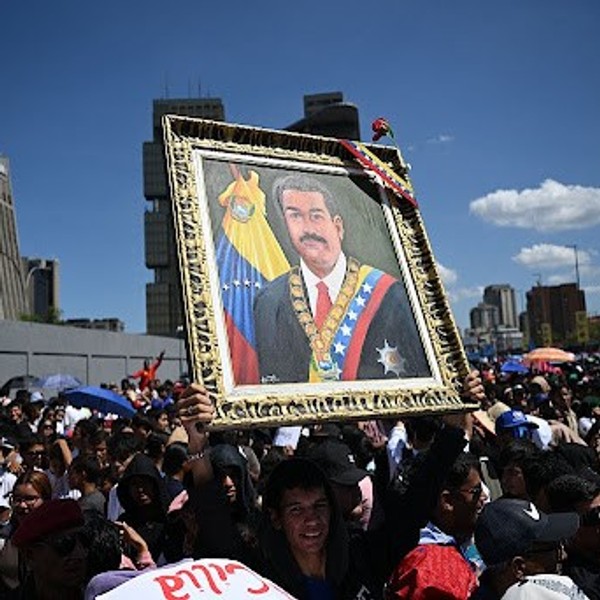During this unusual political season, I hear a recurring question from former, present, and aspiring intelligence officers. It’s a question that I have rarely heard before, no matter the Administration or political persuasion of my interlocutors: “What do we do if we are given an illegal order?” This has already been discussed regarding the military, but what happens when intelligence officers believe that they are being asked to support a policy they believe to be basically unethical or even illegal?
Though they often are not political animals (and in fact, are governed by the most stringent provisions of the Hatch Act, which forbids them from openly campaigning for candidates), intelligence officers are not naïve. These restrictions underpin the fact that intelligence officers must first and foremost be committed to their mission; to preserve and defend the U.S., the Constitution, and to safeguard the lives of Americans against threats.
Much has been written about the context of an “illegal order,” for example, ordering soldiers to violate the Laws of Armed Conflict or the U.S. Uniform Code of Military Justice. If a candidate on the stump asserts that he or she is prepared to order the killing of the relatives of a terrorist – potentially a war crime – that is precisely the type of situation contemplated by those concerned about illegal orders.
However, I believe the concern is not substantially about direct and potentially illegal orders, but about access and authority over the powerful intelligence tools available to the President of the United States. Intelligence is not black and white. It is often nuanced and difficult to apply in complex situations. This is a challenge to policy makers and requires patience, attention, and honesty. No president can be an expert on all the many issues on which he or she is briefed. But there must be a commitment to at least understand the problems with which we are confronted worldwide. Ignorance and a pronounced desire not to waste time on facts is a danger – no matter what party or policy is involved.
We are not talking about mere policy differences. This discussion reflects a growing concern that the vast collection capabilities of the U.S. intelligence community will be used to undermine important institutions of democracy, such as our judicial system or even individual judges or reporters who anger the president.
And this worry is not limited to the tools utilized by the U.S. intelligence community. There is concern that a candidate for president of the United States must be able to safeguard highly classified and perishable information and to hold his/her tongue if necessary to protect this information and the men and women of the intelligence community. If the overarching priority of a president is to prove him/herself right and scapegoat others while demonstrating contempt for the rule of law, then the potential for damage is only too clear.
For some of us, there is a bit of déjà vu here. It harkens back to the Huston Plan and intelligence abuses in the 1970s under President Richard Nixon. This is what happens when a president used intelligence to settle his own personal vendettas, when the focus is not on what is best for the country, but what is best for him. This is not the personality of an individual that should be the ultimate authority on intelligence or covert operations.
Since those days, this country has adopted active and robust oversight of intelligence activities, albeit imperfect. But an individual who rejects any form of criticism is unlikely to accept the rigors of an oversight regime. This type of individual leaves the intelligence community and its officers exposed to the basest of charges; and it is this issue that has also raised deep concerns.
With these issues in mind, I offer a series of questions that we should consider when electing not only a president, but a commander-in-chief who wields primary authority in intelligence operations.
For each of these questions, consider whether the answer is yes, no or maybe.
SPOILER ALERT: It is doubtful any candidate of any party would ever score a perfect 100 percent of yes answers, but certainly a majority of “no” or “maybe” answers should give us pause:
- Would you want this candidate sitting at the head of the table in the Situation Room?
- Does the candidate appear to be able to understand and communicate nuanced issues (gray areas), or do they even care to?
- Do they appear to be drawn to simple solutions?
- Does this candidate indicate that he/she would consider giving illegal orders that could violate the Uniform Code of Military Justice?
- Do they have advisors with substantive experience, and do they show an inclination to accept advice from those advisors?
- Do they have a foreign policy or other goal that dwarfs all others and raises concerns about their ability to deal with crises outside that issue?
- Do they respond to a crisis or complex issue with questions that need to be answered?
- Do they respond to a crisis with invective and/or scapegoating or “shooting from the hip?”
- Do you trust them to safeguard perishable intelligence information as well as sensitive sources and methods?
- Will they respect the institutions, procedures, and laws regarding intelligence oversight?
What happens when we doubt the ability or inclination of the President of the United States to protect and defend, not only the Constitution, but our entire nation? These are the questions that currently are being discussed behind closed doors and with considerable concern. It is the leaders and lawyers for the intelligence community who potentially have the critical duty to confront this situation. But it is incumbent on all of us to consider the potential dangers to our democracy and freedoms that can occur when intelligence power is misused or abused.















